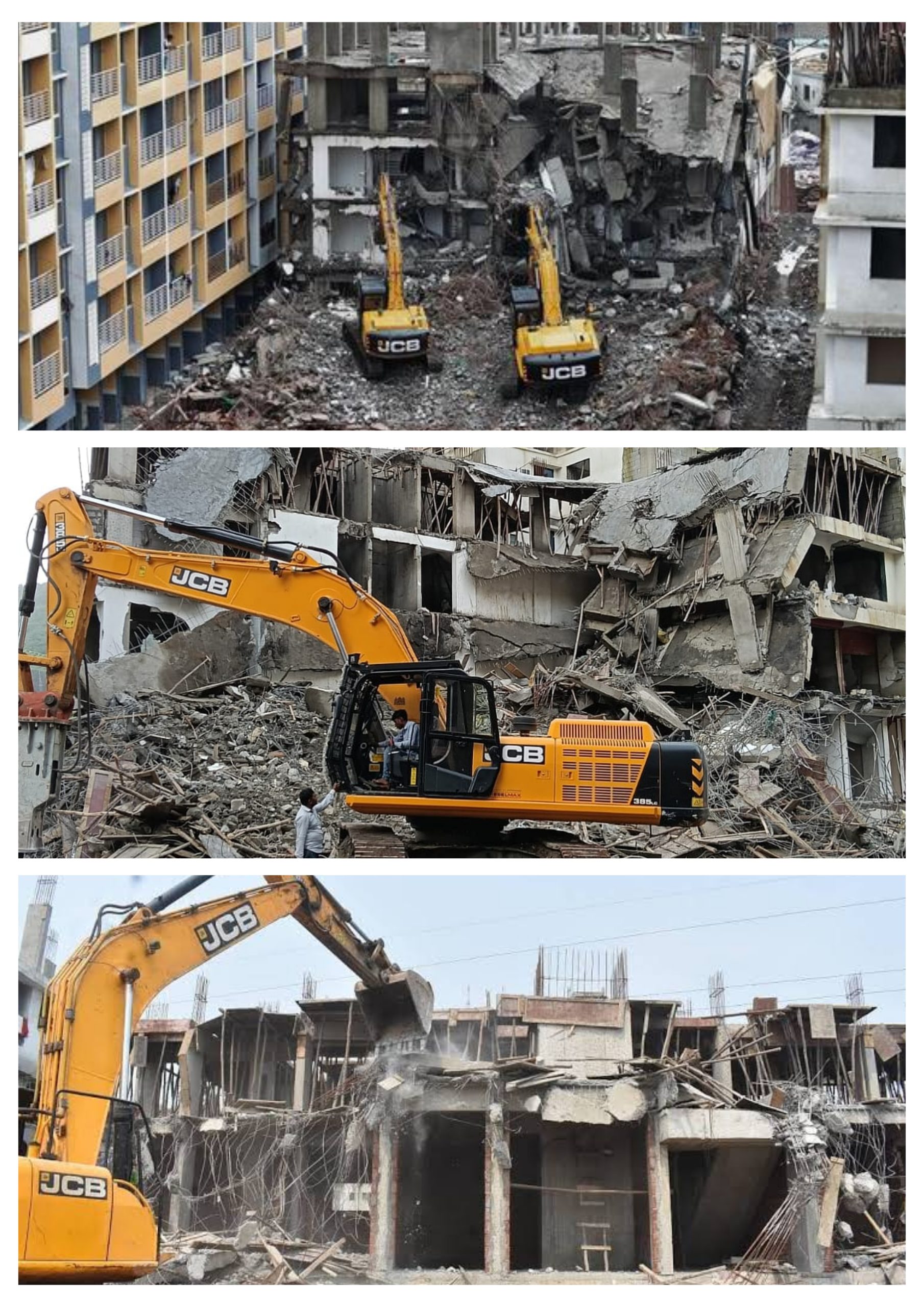
Mumbra demolitions prove delay in deemed conveyance is destroying homes
Societies without ownership cannot correct illegal structures, cannot secure CC or OC, and remain at mercy of demolitions
by Dr. Danish Lambe
In June 2025, the demolition drives in Mumbra shook thousands of families. Entire neighborhoods in Khan Compound and surrounding areas saw bulldozers roll in, flattening homes declared “illegal” by the Thane Municipal Corporation (TMC). These demolitions came on the back of Bombay High Court orders, upheld by the Supreme Court. The law was enforced, but the human cost was devastating—residents left homeless, children studying under temporary shelters, families clutching incomplete papers, and a whole community asking: Why did it have to come to this?
Every year of delay in deemed conveyance pushes societies closer to collapse
At the heart of the Mumbra crisis lies a fundamental housing issue—deemed conveyance. For decades, cooperative housing societies across Maharashtra have struggled to secure conveyance deeds from builders. Without these, their legal ownership remains incomplete, leaving them vulnerable to exploitation, redevelopment delays, and in extreme cases, demolition. If deemed conveyance was timely granted, could many Mumbra families have been saved from losing everything?
Questions That Cannot Be Ignored:
- Why were so many families in Mumbra unaware that their flats stood on disputed or unauthorized land?
- Why are cooperative housing societies across Maharashtra still denied their rightful deemed conveyance, despite clear laws and GRs?
- Why do municipal bodies insist on endless paperwork when builders’ obligations are already recorded?
- Why must citizens prove ownership again and again, while builders escape with profits?
- Why should middle-class families pay heavily for self-redevelopment, when timely conveyance could have given them security years ago?
- Why do people wait until they receive demolition notices for dangerous or illegal structures before acting?
- Why don’t residents pay small amounts towards assessment tax or push for deemed conveyance earlier, instead of waiting for a crisis?
The Ground Reality in Mumbra and Beyond
The Mumbra demolitions are not just about one neighborhood. They reflect the fate of thousands of societies across Thane, Mumbai suburbs, and Navi Mumbai. Without deemed conveyance, residents cannot access bank loans, cannot plan redevelopment, and cannot even hire an architect or liaising consultant to correct plans, re-apply for Commencement Certificates (CC), or obtain Occupation Certificates (OC). Builders hold on to rights long after their projects are complete, while residents live in unsafe, deteriorating structures vulnerable to monsoon leaks, fires, and collapse.
Highlighted Importance:
👉 Deemed conveyance is the single most important legal tool that allows societies to convert “illegal” or uncertain structures into recognized, legal residential buildings.
Why Deemed Conveyance Is Urgent Now
The urgency has never been clearer. The Mumbra demolitions prove that without proper ownership and conveyance, citizens remain vulnerable to sudden crackdowns. At the same time, thousands of societies in Mumbai and Thane are ageing rapidly, desperately in need of redevelopment. Government after government has promised reforms, but on the ground, files still move in circles—lost records, demands for clarifications, and bureaucratic delays. How many more collapses or demolitions will it take before housing rights are secured?
What Needs to Change
Experts argue that timelines and accountability must be enforced on municipal and revenue officers. Builders who fail to hand over conveyance must face strict penalties. A digital ownership record system could eliminate excuses of “missing files.” More importantly, the government must step in not only with promises but with practical, citizen-friendly processes. Unless the system shifts from paper-pushing to proactive action, Mumbra will not be the last tragedy.
The Human Angle
Every demolished home in Mumbra is a story of shattered dreams. Families who invested life savings in buying a flat, only to be told years later that their home was “illegal.” Women society members who fought for documents but were turned away at offices. Retired citizens with no strength left to fight legal battles. These stories mirror the silent suffering of thousands of societies still waiting for conveyance.
Closing Thought
Mumbra’s demolitions have made one truth unavoidable: until deemed conveyance is delivered, citizens will always live in uncertainty. For what more are people waiting? Another monsoon to flood staircases? Another building collapse? Or another demolition drive that wipes out entire communities? Deemed conveyance is not charity—it is a right. Until the government enforces it, every delay remains an injustice.



